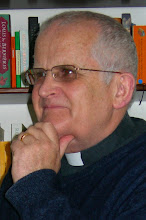There are many things happening in the story and we can order the picture by asking what various characters do: what does Herod do? In contrast what does Joseph do? What part did the Magi play? How is God stage directing the whole play? What does the narrator tell us about scripture and how does this add to Matthew’s birth story?
What does Herod do? He provides the occasion for the cast to go to Egypt. We, and Joseph already know why they go and for how long. He launches a broadcast attack on all the boys under two in the hope of catching one. The reference to a calculation based on a conversation with the magi falls over since we do not know how long ago the conversation took place. It adds a history-like element to the story but it is not history – no blood is left on the pages of history. (Brown, p. 204, mentions population calculations that lead to a number of about 20 boys in this age group.) Herod also models Pharaoh and therefore allows Jesus to model Moses and Joseph to model the original Joseph who went down from Canaan to Egypt. Egypt is the land of refuge as well as the land of plenty (Brown, p. 203).
What does Joseph do? He models a pious obedience. Just as the angel of the Lord says, so he does: he gets up, takes the child and its mother and goes (e.g. 2:20f.)
What do the magi do? They set everything in motion by leaving, having been “warned in a dream” (2:12). I find this strange, the warning coming through a dream. Has something changed since they gave homage to the child? Herod perceives that they have tricked/mocked him. We know that Jesus will be mocked by the soldiers (27:31 “Hail King of the Jews!”) and by the Jerusalem leaders (27:41 “He saved others …”)
What does the angel of the Lord do? He warns Joseph to flee and to return ( “those who are seeking the child’s life are dead”) He is a source of information and advice
What does Matthew do? He interprets what is happening to us by means of the narrator and he provides the reflection on Scripture that links the birth story to:
- Egypt. He takes us there with the original Joseph “Out of Egypt I have called my Son” We have heard Son of Abraham, Son of David, and now we are alerted to the designation Son of God which we will hear at the baptism. Exodus from Egypt - a significant marker, pointing to a new exodus and a new redeemer, a new Moses. Moses will continue to provide a model for Jesus, fasting 40 days in the wilderness and going up a high mountain and returning with teaching
- Exile. Ramah, near Bethlehem, thought to be the site of the tomb of Rachel “Rachel weeping for her children” The link doesn’t appear as tight to us as it does to Matthew. The exile allows for a return (Isaiah 40, 52), providing another point of formation of the people of God and another sign of God’s love and protection. This doesn’t happen at the expense of the children: it is not “in order to fulfill scripture”.
- Nazareth A traditional link that is conveniently/necessarily made; Jesus of Bethlehem needs to become “Jesus of Nazareth”, the son of Mary and Joseph, the carpenter’s son.
Matthew will continue to say “these things took place in order to fulfill the scriptures” We will be on the watch for them

No comments:
Post a Comment